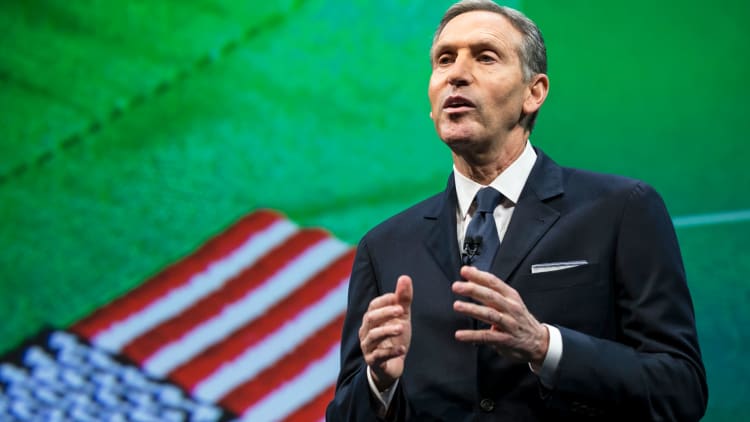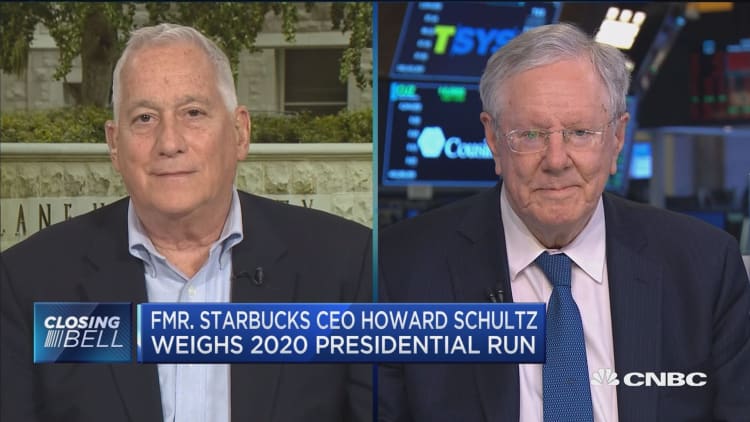
Howard Schultz, Starbucks' outgoing executive chairman, singled out the national debt as the biggest domestic threat to the U.S. in a critique that spared neither Democrats nor the Trump administration's economic policies.
Schultz, a past critic of President Donald Trump's landmark tax legislation signed in December, acknowledged in a wide-ranging interview with CNBC that "the economy is strong," and he gave Trump "some" credit for the gains.
"I give President Obama credit for that. I give President Trump some credit for that," Schultz said during the interview on "Squawk Box."
But he added that "systemic problems in the country," including mental health and opioid crises, racial tensions and income inequality, are at levels "the likes of which we have not had in a long time."
He said the ballooning national debt could be hugely consequential to future generations — especially when coupled with rising interest rates.
"I think the greatest threat domestically to the country is this $21 trillion debt hanging over the cloud of America and future generations," Schultz said.
Schultz had previously slammed Trump's tax law, which slashed the corporate tax rate to 20 percent from 35 percent, calling it "fool's gold" that wouldn't help "create a level playing field and more compassionate society."
Starbucks attempted to do just that by giving employees raises in light of the company's tax windfall from the new law. But Schultz said his previous criticism — that most companies would forward the majority of the benefits to their shareholders — still held water.
"I didn't give the administration credit" for the bonuses, "I gave credit to the fact the leadership of Starbucks did the right thing," Schultz said.
"When you're building a great enduring company, not every business decision should be, and is, an economic one," he said.
Despite his criticism for the corporate tax cuts, Schultz also had choice words for what he characterized as the increasingly left-leaning economic policies of the Democratic Party.
"I will say that it concerns me that so many voices within the Democratic Party are going so far to the left, and I ask myself how are we going to pay for all these things in terms of things like single payer [health care]," he said.
"I don't think that's realistic," Schultz added.
He also cautioned that the current levels of growth in the stock market should not be viewed as a barometer for the health of the entire economy.
"I don't believe that the stock market is going to continue to grow at the level it has between now and 2020," Schultz said.
"You're going to see a sea change."
WATCH: If Schultz runs in 2020, he will likely sever Starbucks ties



